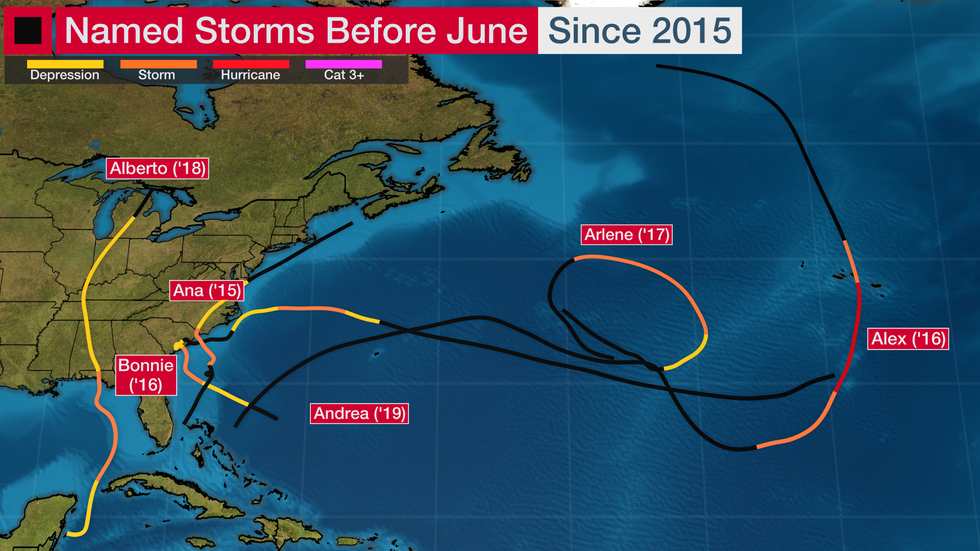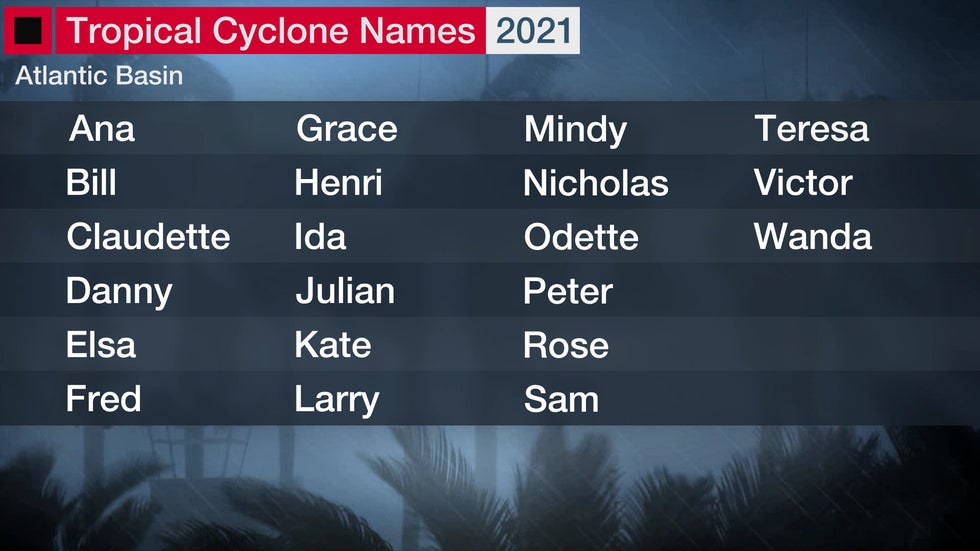Jan Wesner Childs
NOAA is considering moving up the official start date of the Atlantic hurricane season, after a string of years when the first named storm in the basin has happened before June 1.
A team from the National Hurricane Center and the National Weather Service will likely take up the topic this spring, NHC spokesperson and meteorologist Dennis Feltgen confirmed in an email to weather.com Friday.
A recommendation was made at the most recent NOAA Hurricane Conference in December that the team be assembled this year to discuss the idea, Feltgen said in a statement.
"Considerations for the team would include a determination of the quantitative threshold for adding or removing dates from the official Atlantic hurricane season," he said. "Then, an examination would need to take place regarding the need for, and potential ramifications of, potentially moving the beginning of the hurricane season to May 15."
(MORE: We're Less Than 100 Days From the 2021 Atlantic Hurricane Season – Here Are This Year's Names)
Currently, the Atlantic hurricane season officially runs from June 1 to Nov. 30. The original dates were set in 1935 when a new hurricane warning network was set up with a special telegraph line that operated from June 15 to Nov. 15, according to NOAA. Those dates were changed in 1965 to coincide with the first and last days of the month. They've remained the same ever since.
Meanwhile, the unofficial kickoff of the season has moved up.
Tropical Storm Arthur formed last year on May 16, marking the sixth consecutive year that a named storm formed before June 1. Prior to that, at least one named storm had developed before June 1 each hurricane season since 2015, some of which had impacts in the United States and elsewhere in the Atlantic Basin. In fact, tropical storms have occurred in every month of the year.
Any change in dates would affect only the Atlantic hurricane season and would put it in line with the Eastern Pacific hurricane season.
Earlier named storms are the topic of much research, especially as they might relate to climate change. Hurricanes are fueled by warmer ocean temperatures and most often occur in the summer to late fall.

The fact that storms are being identified at different times of the year is often attributed to better technology, including high-definition satellites.
"Named storms have formed prior to the official start of the hurricane season in about half of the past 10-15 years, including each of the past six years," Feltgen said. "Many of the May systems are short-lived, hybrid (subtropical) systems that are now being identified because of better monitoring and policy changes that now name subtropical storms."
The NHC has already decided on one change this year that signals a transition toward earlier storm monitoring. The agency will begin issuing its familiar Tropical Weather Outlooks, which provide the probability of tropical cyclone formation during the next 2 and 5 days, on May 15.
The NHC issued 36 "special" TWOs before June 1 last year, according to Feltgen.
Hurricane season dates are important not just to forecasters, but also to emergency management officials who use the dates for planning purposes and public awareness campaigns.
Last year turned out to be a historic hurricane season, with a record 12 named storms making landfall in the U.S.
 The National Hurricane Center recently released names for the 2021 Atlantic hurricane season.
The National Hurricane Center recently released names for the 2021 Atlantic hurricane season.The Weather Company’s primary journalistic mission is to report on breaking weather news, the environment and the importance of science to our lives. This story does not necessarily represent the position of our parent company, IBM.
The Weather Company’s primary journalistic mission is to report on breaking weather news, the environment and the importance of science to our lives. This story does not necessarily represent the position of our parent company, IBM.

No comments:
Post a Comment